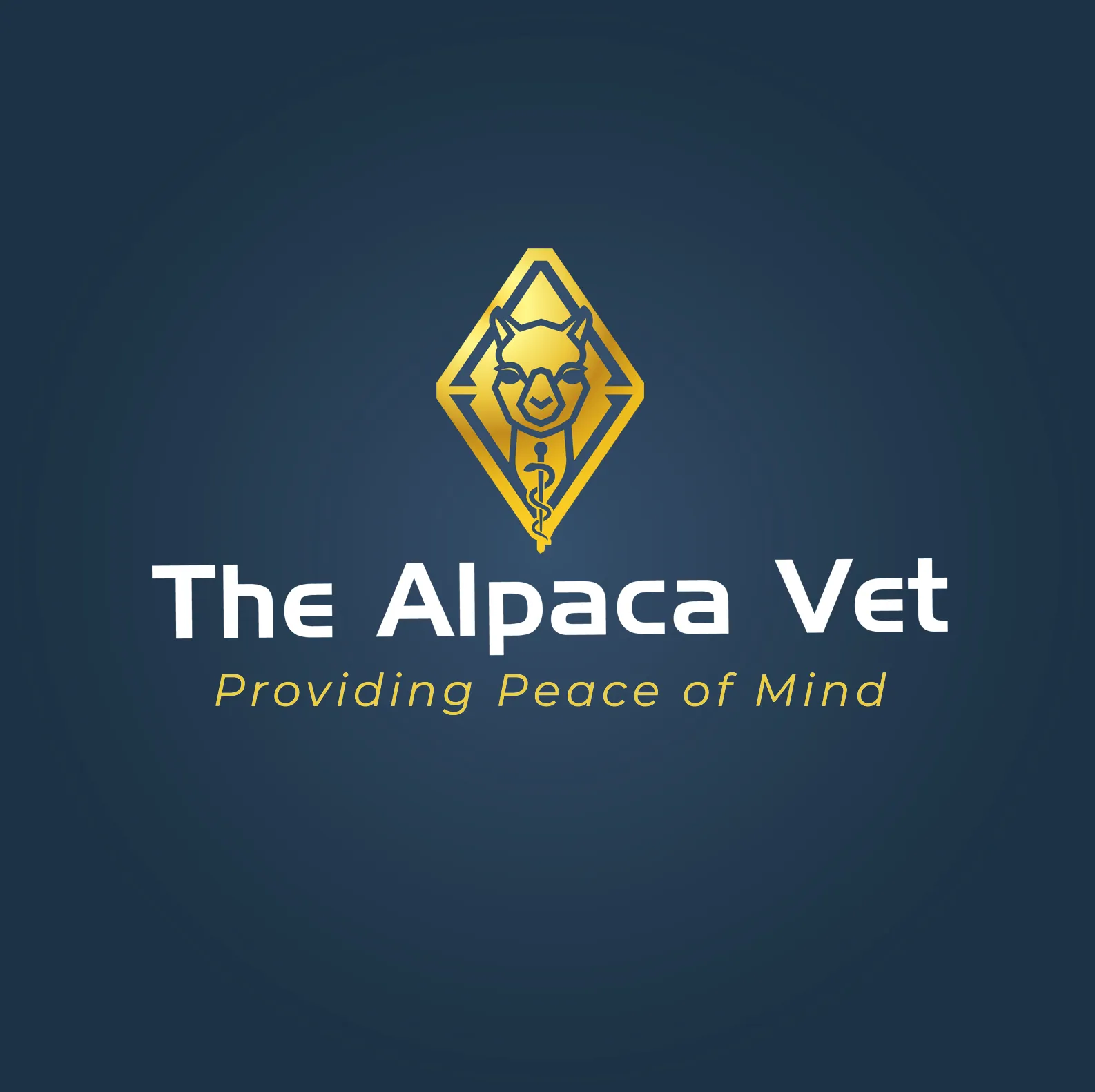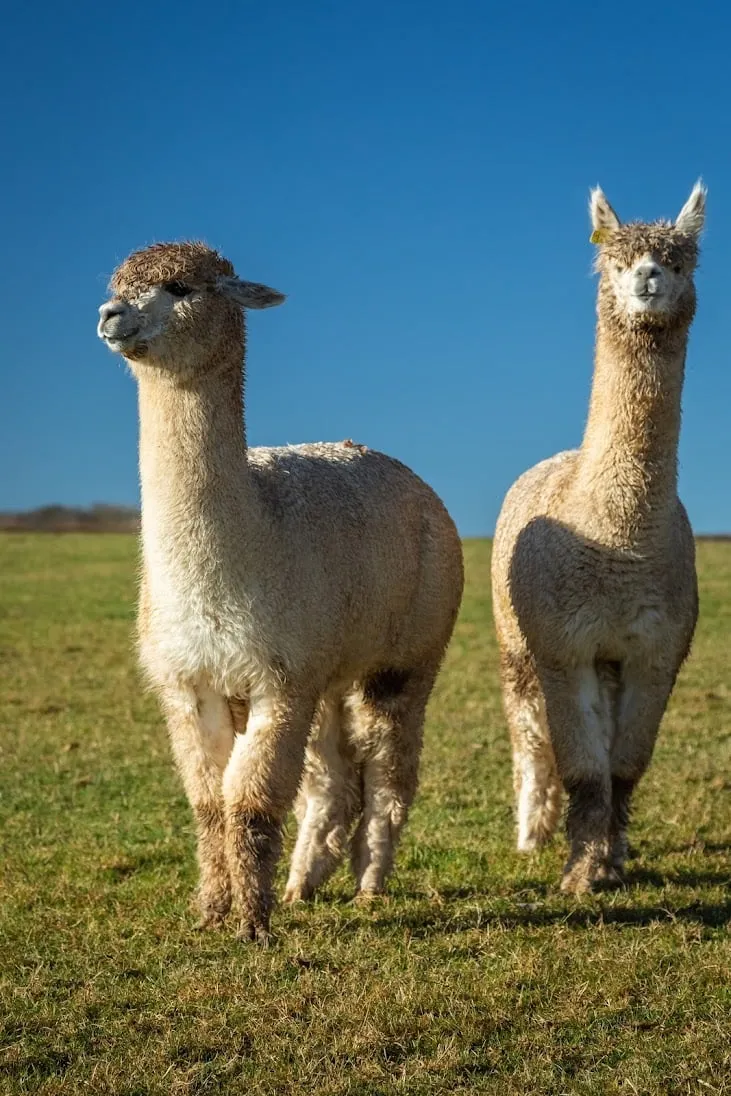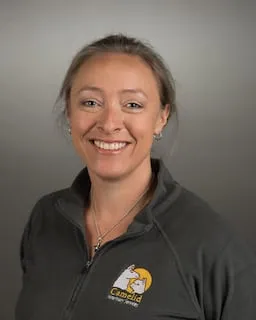
You will develop confidence in working with these fantastic species! There’s nothing worse than feeling out of your depth. This course will give you all the background knowledge that you need about the species to provide you with sufficient confidence with which to approach most of the common scenarios seen in practice.
You will finish the course feeling like you have all the knowledge you need to help the alpacas and llamas under your care!
Earn the trust of your clients by improving their satisfaction with your level of care and interest.
Cut the time it takes to reach a diagnosis and get your patients treated effectively
Reduce distress to your patients and their owners by reaching the correct diagnosis and knowing how to deal with it
Help your clients develop herd health plans to prevent problems in the first place.
You will receive the most up to date information from the UK’s only specialist camelid vet!

Eleven modules of ON DEMAND online training, providing a total of 20 hours of continuing education.
Access for a whole year through your portal.
Check into the training any time it’s convenient for you! Complete at your own pace.
A continuing education certificate will be provided upon successful completion of the course. There is also an end of course quiz that you can use to test your learning.
Full printed course manual are provided so you don’t have to write everything down. Delivered to you anywhere in the world! (Postage included)
Access to a live Q&A Support Zoom meeting with Claire Whitehead every other week so you can ask your questions, giving ample opportunity to ask the questions YOU need answers to - there is no such thing as a stupid question! Access available for 3 months once registered for the course. The Q&A sessions will start on Monday 8th September and take place at 8pm UK time.
BONUS #1! Camelid formulary
BONUS #2! Treatment sheet template for on-farm care. This will make sure that your patients get the treatments they need at the right time, and helps organise their owners.
BONUS #3! Sick Cria Workflow Protocol
BONUS #4! One free case consultation (of up to 30 mins duration)

I can't wait to help you build your confidence with camelids!
I guarantee this course is going to expand your knowledge about camelid health care. From basic principles to practical tips, I'm going to give you all the tools you need to succeed. Plus, the course format makes learning convenient and fun!
- Claire E Whitehead BVM&S MS DACVIM FHEA MRCVS
Camelid Veterinary Services Ltd
Introduction to Camelid Medicine and the Physical examination
An introduction to the Camelid Industry and species-specific anatomy, physiology and behaviour. You will also learn how to approach the clinical examination in camelids as well as how to interpret those findings.
Routine on-farm procedures
In this module, we start by covering handling of camelids for facilitation of various procedures. Then we will cover toenail trimming, venepuncture techniques including placement of intravenous catheters, castration and nasolacrimal duct flushes. We will also cover the vaccination strategies that can be employed in camelids.
Parasite control: worms, coccidia and fluke
This is a crucial part of camelid husbandry. It is vital to ensure that your clients understand how best to manage parasites in their animals. In this module we cover the types of parasites of importance for camelids, parasite control strategies, faecal testing and how to handle treatment of camelid endoparasite burdens, from an individual animal and herd perspective.
Skin problems
Mange is one of the most important skin problems affecting camelids. In this module we will discuss the different types of mange, how to differentiate them, and how to treat them most effectively. We also address other skin problems that may affect camelids including lice, dermatophilus, ringworm, allergic skin disease and auto-immune disease.
Camelid emergencies including how to approach “the sick camelid”
In this module, we will cover your approach to the camelid emergency so that you know what to do, you can feel confident and ditch the dread! We will cover some common clinical scenarios that you may be faced with and how best to deal with them.
Reproductive emergencies
Many reproductive emergences will be familiar to you from other species. However, with camelids they will sometimes be approached slightly differently. We cover those differences here so that you are better able to manage camelid reproductive emergency cases.
Management of Newborn Crias
Neonatal management is one of the most rewarding areas of camelid medicine. In this module we will cover the most common problems encountered by camelid neonates and how to manage them, including failure of passive transfer and sepsis, congenital defects, hypothermia, hypo/hyperglycaemia and prematurity.
Angular Limb Deformities &Rickets
In this module, we discuss the main causes of angular limb deformities in crias and how to manage them. In particular we deal with prevention and treatment of rickets in camelids which is a critical part of camelid management outside of South America.
Camelid Reproduction for General Practitioners
This is a brand-new module to help general practitioners understand the principles of camelid reproduction. Because camelids are induced ovulators, their reproductive physiology is completely different from other species you may be familiar with. An understanding of camelid anatomy and physiology enables you to help your clients understand what might be going on in the case of suspected infertility. In this module, you will learn the common causes of infertility and whether and how you can address these, or when referral to a specialist is more appropriate.
Dental Management
This module deals with the normal camelid dentition, when and how to trim incisor and canine teeth, what to do about retained deciduous incisors and how to diagnose and manage tooth root abscesses and osteomyelitis.
Bovine TB in camelids
Relevant in areas where bovine TB is a concern, camelids have been found to be highly susceptible to bovine TB. Since TB is a notifiable disease, as veterinarians it is crucial to be able to recognise it, diagnose it (both clinically and at necropsy) and understand how to advise clients on biosecurity and testing to minimise their risk of disease and deal with any disease breakdowns if they occur.
The course investment is £997 +VAT per person for the full course.
Full printed course notes are included and will be posted to delegates once registered for the course.
For delegates outside of the UK, please provide a business name and VAT number (or valid tax ID) to receive the course VAT-free.
Registration is open to vets, vet nurses/technicians, and vet students only. (For students there is a 50% discount available. Please email [email protected] for details - in your email include evidence of your student status such as a valid student ID or documents from your university showing your course and dates of enrolment).
If you are a UK-resident vet, The British Alpaca Society will reimburse £273.50 +VAT for the first 20 people to register. Email [email protected] to take advantage of this opportunity - if you are not on the list, you may not be able to claim. You must pay in full for the course at the time of booking and will be able to reclaim the subsidy by invoicing the BAS directly after completion of the course. You will need to have completed a brief test at the end of the course and received your completion certificate in order to reclaim the subsidy.
Optional practical session: £150 +VAT per person. Available as an extra during checkout.
Claire E Whitehead BVM&S MS DipACVIM FHEA MRCVS
Claire graduated from The University of Edinburgh in 1999. She completed a Residency in Large Animal Internal Medicine at The Ohio State University in July 2005. After a further year at Ohio State as a clinical instructor in Camelid Medicine and Reproduction, she returned to the UK in 2007 where she established the first referral service catering specifically for Camelids alongside other farm animals at The Royal Veterinary College, London. In May 2011, she set up in private practice running a camelid-only referral and consultancy practice and runs courses for vets and owners/breeders on Camelid Health and Reproduction. She opened a new camelid-focussed facility in Summer 2015. She is the current President of the British Veterinary Camelid Society and was recognized as an RCVS Specialist in Camelid Health & Production in February 2016. Claire has extensive speaking experience and has presented at conferences all over the United States, in the UK, Ireland, Switzerland, Finland, Sweden, Norway and Holland as well as New Zealand.
“Thank you Claire for a really engaging course. It has given me so much more confidence to be able to deal with the increasing number of alpacas on our books effectively. I found the webinars on common conditions and parasite control particularly useful and have already utilised some of this knowledge for my own clinical cases. The practical session was also great fun and made me much more likely to pick up an ultrasound scanner to use as part of my investigations. ”
- Hannah, UK
“I am a third year veterinary student in Saskatchewan Canada, and I recently completed Dr Whitehead’s camelid health for vets course. Claire’s course encompassed all aspects of camelid health that I could have dreamt of and more! Since I am in a very different time zone and on a strict school schedule, the recorded lectures were necessary and wonderful! I looked forward to my lectures, and will hold my notes close. It was a lovely surprise to open the cute binder in the mail! We need more camelid vets in Canada, and this course gave me the confidence that maybe I’m a bit closer to being one. I am absolutely ecstatic!!! ”
- Laura Callaghan, veterinary student, Canada
“What an excellent course. The content was extremely comprehensive, relevant and was expertly delivered by Claire. The course content covered basic handling and husbandry for those less familiar with camelids right through to preventative medicine, cases, diagnostics and treatments likely to be encountered in practice. Fantastic notes and formulary provided! As a non farm animal vet (owning alpacas), I have come away with sufficient skills and confidence to manage my own herd and advise other owners accordingly. I would strongly recommend this course to vets at all skill and knowledge levels.”
- Candy Hill, UK
“Thoroughly enjoyed the course and learnt so much. One of the best CPD courses I’ve ever done. Claire is a brilliant speaker and obviously very knowledgeable in her field. Would highly recommend this course to any vets wanting to upskill in camelid medicine.
- Vanessa Coburn, New Zealand
“Thank you for the great course that you gave, I learned a lot. You are a talented speaker and it was always a pleasure to listen. ”
- Eva Roden, Germany
“Well suited course for practical aspects of camelid practice, Claire is a great teacher! ”
- Isabella Cerchiai, Italy
Susanna Mereghetti, Italy
Follow the link below! If you have any questions, please email [email protected]